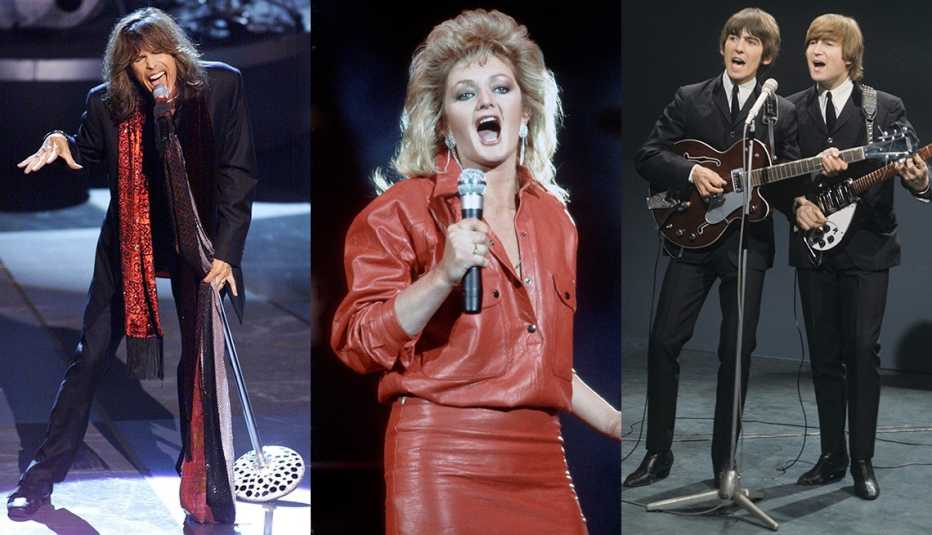AARP Hearing Center


A perfect love song can feel like a beautifully written short story, as if you're dropping in for a few minutes on a great romance, a new fling or a torrid affair in decline. But sometimes the origin stories for these songs can be even more compelling — with enough passion, humor, coincidences and quirky characters to fill a novel. Here, a playlist of songs with unexpected backstories that you may never be able to listen to the same way again.
Listen to AARP’s new Valentine’s Day Playlist for Grownups here!
"I Will Always Love You” by Dolly Parton (1973)
If you've heard Whitney Houston's 1992 cover from The Bodyguard, you might assume this bittersweet ballad was written at the end of a romantic relationship, but it was actually something more akin to a resignation letter. Parton, now 75, appeared on The Porter Wagoner Show for seven years and recorded a dozen albums with her musical mentor, but by 1973 she hoped to strike out on her own, and she wrote this song as a musical farewell. While it was designed to soften the blow, its impact was debatable: In 1979, Wagoner filed a $3 million lawsuit for breach of contract, and the two were estranged for years. They later reconciled, and Parton inducted Wagoner into the Country Music Hall of Fame in 2002.
RELATED: 10 Reasons Why We'll Always Love Dolly Parton



































































More on entertainment
The Go-Go's Belinda Carlisle Explains It All
Pop band's documentary is out on new platforms, along with a fresh videoCelebrating Carole King's 'Tapestry' 50 Years Later
How a talented pop songwriter took on the rock world and became a legend
The Miraculous Virtual Choir of the Pandemic
Eric Whitacre's vast array of online singers brings solace and hope